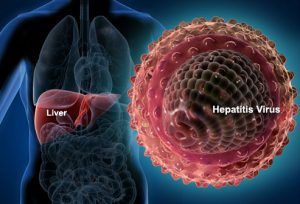- Home
- Editorial
- News
- Practice Guidelines
- Anesthesiology Guidelines
- Cancer Guidelines
- Cardiac Sciences Guidelines
- Critical Care Guidelines
- Dentistry Guidelines
- Dermatology Guidelines
- Diabetes and Endo Guidelines
- Diagnostics Guidelines
- ENT Guidelines
- Featured Practice Guidelines
- Gastroenterology Guidelines
- Geriatrics Guidelines
- Medicine Guidelines
- Nephrology Guidelines
- Neurosciences Guidelines
- Obs and Gynae Guidelines
- Ophthalmology Guidelines
- Orthopaedics Guidelines
- Paediatrics Guidelines
- Psychiatry Guidelines
- Pulmonology Guidelines
- Radiology Guidelines
- Surgery Guidelines
- Urology Guidelines
New, cost effective saliva test that diagnoses liver disease

New York: Scientists have developed an easier, cost effective 'oral fluid' test that uses saliva to diagnose liver disease and may eventually help develop its treatment.
Hepatitis E virus (HEV) causes liver disease that infects an estimated 20 million people worldwide each year and kills more than 56,000.
"HEV isn't as well known as the other viruses that cause hepatitis, an acute or chronic inflammation of liver tissue," said Christopher D Heaney, associate professor at Johns Hopkins University in the US.
Currently, the only way to test for both recent and past HEV is through a blood test that checks for antibodies to HEV or blood or stool tests that check for HEV genetic material.
Both sample types can be difficult to collect from patients in the field, and evaluating them requires resources that are often limited in low- to middle-income countries.
Researchers developed a new HEV test that uses saliva rather than blood or stool.
The current method to diagnose HEV is a blood test that uses a common diagnostic platform known as ELISA (enzyme- linked immunosorbent assay), which looks for antibodies to a disease with antigens typically attached to a solid surface.
The new saliva test uses a different platform in which antigens are attached to fluorescent beads. These beads can circulate more easily through a liquid, potentially encountering more antibodies to a disease if they are present in saliva, researchers said.
Another advantage with this bead-based technology is that it allows for testing of a number of different antigen targets within the same saliva sample. So eventually one could test for multiple different infections in a single saliva sample, they said.
To determine how their saliva test for HEV compares to the more commonly used blood test the team recruited 141 patients who provided both blood and saliva samples.
76 were referred because of symptoms of acute viral hepatitis, and 65 were referred for reasons unrelated to acute viral hepatitis.
Researchers noted that the saliva test nearly matched the results of the blood ELISA , with two discrepant results for past infection and four for recent infection.
The saliva test also scored high as far as sensitivity and specificity, important indicators of a test's accuracy.
For past infection, sensitivity and specificity for the saliva test were 98.7 per cent and 98.4 per cent respectively, and for recent infection, sensitivity and specificity were 89.5 percent and 98.3 percent respectively, researchers said.
Besides patient preference, saliva also has the benefit of potentially simplifying hepatitis E testing in the field.
Blood samples have many requirements that saliva samples don't, such as personnel specially trained for collection, the need to protect samples from heat, and sanitary disposal of needles, researchers said.
The study was published in the Journal of Immunological Methods.

Disclaimer: This site is primarily intended for healthcare professionals. Any content/information on this website does not replace the advice of medical and/or health professionals and should not be construed as medical/diagnostic advice/endorsement or prescription. Use of this site is subject to our terms of use, privacy policy, advertisement policy. © 2020 Minerva Medical Treatment Pvt Ltd